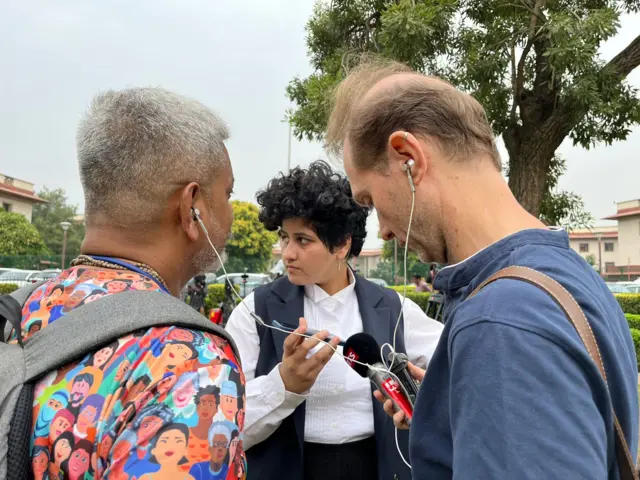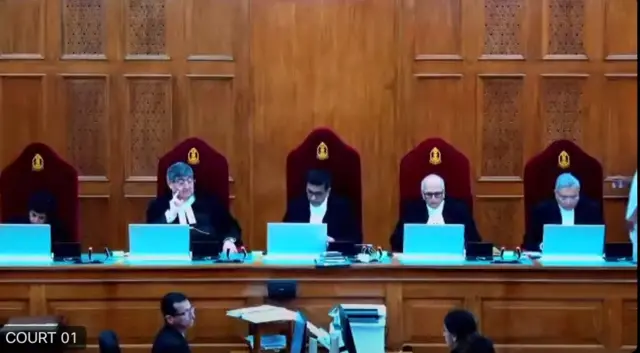Chief Justice Chandrachud's conclusionspublished at 07:36 BST 17 October 2023
The chief justice concluded his remarks by saying that "there is no universal conception of the institution of marriage and that it lies within the domain of parliament and state legislatures to enact laws recognising and regulating queer marriage".
Marriage, he said, had attained significance as a legal institution largely because it's regulated by the state and comes with a number of material benefits.
There is no fundamental right to marry in the constitution and an institution cannot be elevated to the realm of a fundamental right based on the importance accorded to it by law, he added.
However, he said that several facets of the marital relationship are reflections of constitutional values, including the right to human dignity and the right to life and personal liberty.
"This court cannot either strike down the constitutional validity of the Special Marriage Act or read words into the Special Marriage Act because of its institutional limitations. The court, in the exercise of the power of judicial review, must steer clear of matters, particularly those impinging on policy, which fall in the legislative domain," he said.


